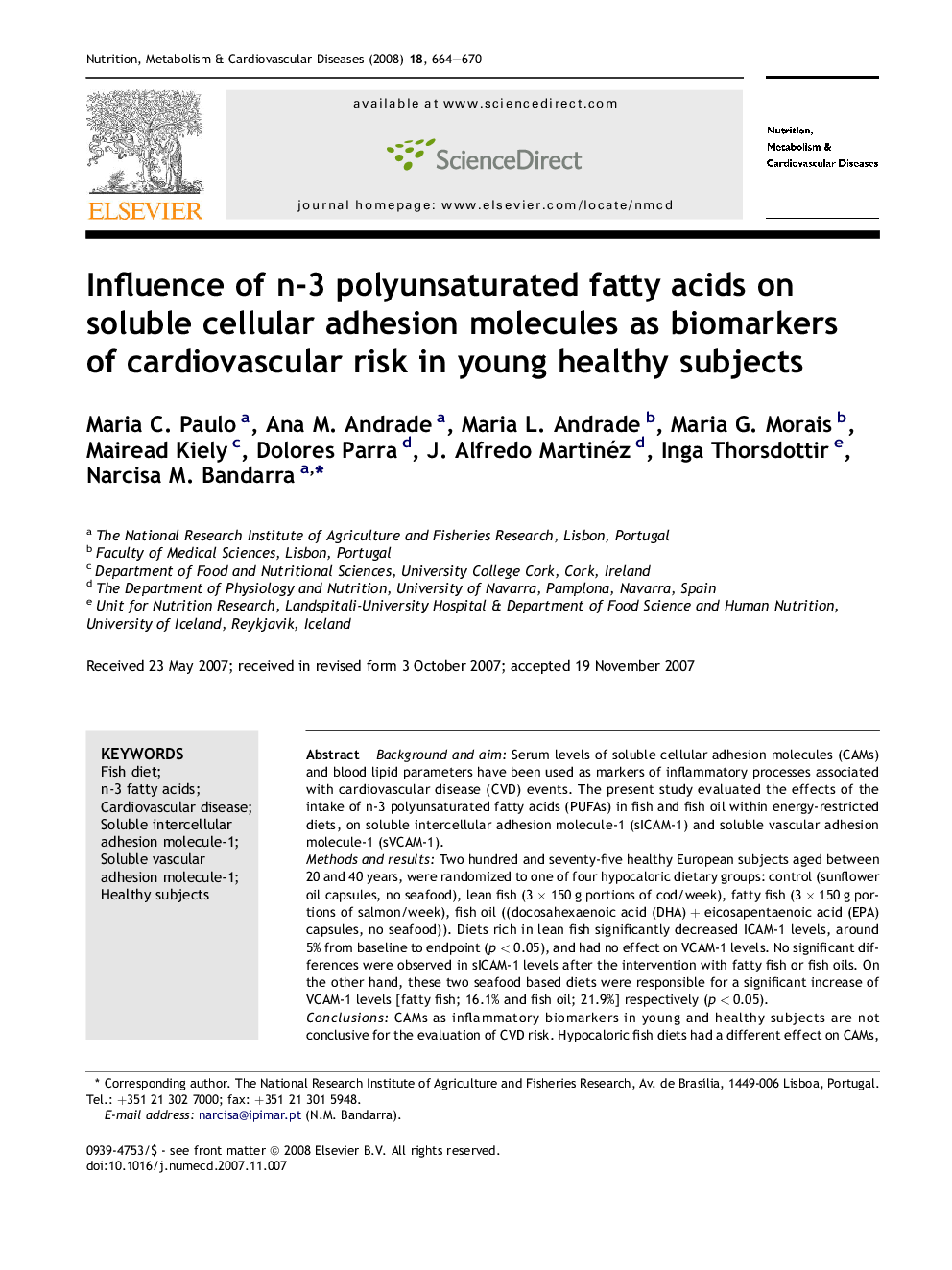| کد مقاله | کد نشریه | سال انتشار | مقاله انگلیسی | نسخه تمام متن |
|---|---|---|---|---|
| 3002506 | 1180729 | 2008 | 7 صفحه PDF | دانلود رایگان |

Background and aimSerum levels of soluble cellular adhesion molecules (CAMs) and blood lipid parameters have been used as markers of inflammatory processes associated with cardiovascular disease (CVD) events. The present study evaluated the effects of the intake of n-3 polyunsaturated fatty acids (PUFAs) in fish and fish oil within energy-restricted diets, on soluble intercellular adhesion molecule-1 (sICAM-1) and soluble vascular adhesion molecule-1 (sVCAM-1).Methods and resultsTwo hundred and seventy-five healthy European subjects aged between 20 and 40 years, were randomized to one of four hypocaloric dietary groups: control (sunflower oil capsules, no seafood), lean fish (3 × 150 g portions of cod/week), fatty fish (3 × 150 g portions of salmon/week), fish oil ((docosahexaenoic acid (DHA) + eicosapentaenoic acid (EPA) capsules, no seafood)). Diets rich in lean fish significantly decreased ICAM-1 levels, around 5% from baseline to endpoint (p < 0.05), and had no effect on VCAM-1 levels. No significant differences were observed in sICAM-1 levels after the intervention with fatty fish or fish oils. On the other hand, these two seafood based diets were responsible for a significant increase of VCAM-1 levels [fatty fish; 16.1% and fish oil; 21.9%] respectively (p < 0.05).ConclusionsCAMs as inflammatory biomarkers in young and healthy subjects are not conclusive for the evaluation of CVD risk. Hypocaloric fish diets had a different effect on CAMs, being lean fish responsible for the highest decrease in ICAM-1. On the other hand, VCAM-1 results allow speculation that a low dose of n-3 PUFA may be anti-inflammatory contrarily to a high dose which can have a pro-inflammatory effect. CAMs mechanism is complex and affected by multiple factors such as lifestyle, gender, and n-3 dose and source.
Journal: Nutrition, Metabolism and Cardiovascular Diseases - Volume 18, Issue 10, December 2008, Pages 664–670